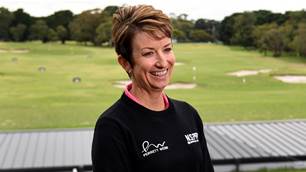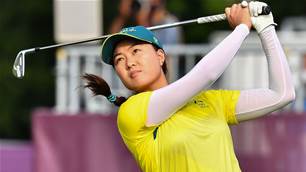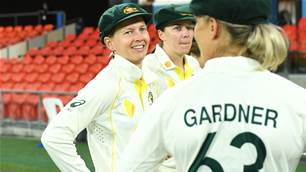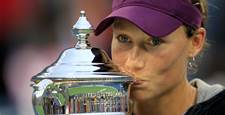Laurel Hubbard’s competing at the 2018 Commonwealth Games on the Gold Coast in the 90 plus female weight division on Monday re-ignited the ‘unfair advantage’ debate of transgender women competing in sport.
Being a journalist and writing predominantly about women’s sport The Women’s Game as well as for Macleay College’s news site - Hatch - I’ve tried to detach from writing about trans women in sport issues.
I’d prefer not to be typecast as a journalist who only writes about LGBTIQ issues.
However, watching Hubbard’s own struggles on Monday with people from the island nation of Samoa questioning her legitimacy to compete made me sad and brought back vivid memories of my own personal battles as a transgender sportswoman over a decade ago.
 Like Hubbard, my greatest challenge playing women’s rugby post-transition occurred when my transgender status became known to my club teammates and peers, many of whom were of Pacific Island heritage.
Like Hubbard, my greatest challenge playing women’s rugby post-transition occurred when my transgender status became known to my club teammates and peers, many of whom were of Pacific Island heritage.
I was quickly ostracised and treated as a pariah, which led to a physical assault by seven Samoan and Tongan teammates, where my hands were held behind my back by one player, while six others rushed in and threw punches to my head a week before I represented Sydney at Rugby Australia’s national women’s rugby championships in 2005.
Some of those same players were my teammates in the Sydney team and it was no surprise at those nationals I struggled, as I was understandably not in a good headspace and I see parallels with Hubbard’s mindset being similar to my own.
 The nervousness she displayed, where she appeared to be shaking like a leaf during her three lifts, was more than likely caused by questions asked about her validity to compete in female competitions.
The nervousness she displayed, where she appeared to be shaking like a leaf during her three lifts, was more than likely caused by questions asked about her validity to compete in female competitions.
She would have lifted those weights successfully many times in training, but the spotlight put on her with a blowtorch effect wouldn’t have enabled her to be in a good headspace, hence the struggle.
Added to her dilemma was the hormonal deficit her body is going into.
Kristen Worley, a Canadian transgender cyclist, who won her case in the Human Rights Tribunal in Canada, which challenged the gender rules of sport as determined by the IOC, said she could tell Laurel’s body was going into androgen deprivation.
“I expressed weeks ago to international colleagues and officials this very concern," she said.
“I knew by looking at her body; she was at the 4-5 year limit in terms of transition and key ‘body types’ were showing due to years of ‘complete deprivation of the ‘XY’ female physiology’ which leads too [sic] protein cell synthesis ceasing," Worley said.
In layman’s terms this means Hubbard’s body was not able to recover properly from training sessions and her body had lost the ability to lift such heavy weights due to androgen (testosterone) deprivation.
Worley also mentioned Hubbard wouldn’t even be aware her body was in its current state of testosterone deprivation and hence her going for it on the day, which caused her to completely rupture her ligament in her elbow.
Worley, who had been through the same process in regards to her own body issues as an XY female (transgender woman) which she documented, now has a reasonably healthy body due to medical intervention and testosterone supplements, which took her out of a post-menopausal state.
I have similar issues at present and have investigated with Worley’s help and with my blood results now known, my own body at 0.4 nanomols of testosterone is in a post-menopausal androgen deficient state, so any advantage we may have a year or two after transition is quickly eroded and the longer we are post-transition and gender reassignment surgery, the lesser our testosterone levels will be.
Worley mentioned our transgender (XY female) levels - are well below the 10 nanomols the IOC wants trans women to be under, which in itself is lower than the level an XX female has and a sportswoman has even higher levels due to natural androgen gains from training.
Hubbard is now retired as an international athlete but with this information entering the mainstream, hopefully, transgender athletes will start receiving a fair go from all concerned.
That will be Hubbard’s ultimate legacy as a transgender sporting trailblazer, as her failed bid has brought to light an issue which needs to be addressed.
Related Articles

Karrie calls for ‘more positive messages’ in golf

Golf added to Commonwealth games for 2026













